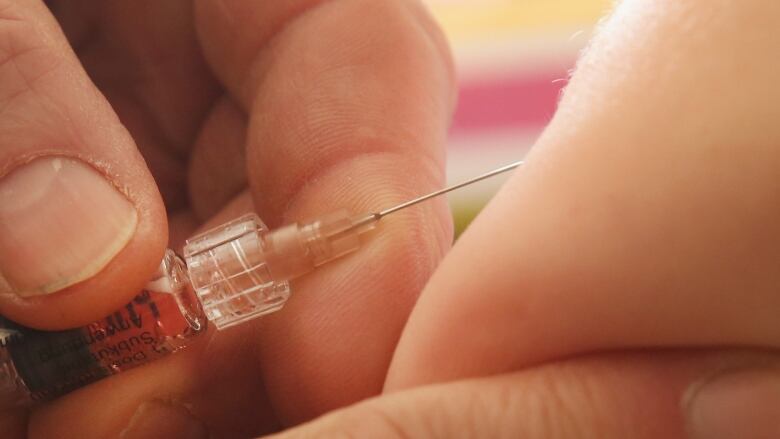Measles threat looms in Philippines as trust in vaccines declines
Politics and conflict both significant factors, experts say

Health experts on Monday warnedagainst a possible outbreak of measles in the Philippines, as adisease long under control threatens to emerge again amid patchy immunizationprograms and declining trust in vaccines.
Measles cases jumped nearly fivefold to 17,300 in the first 11months of 2018versus last year's figure, mostly in conflictareas in the south, said doctors and officials of the WorldHealth Organization (WHO).
"We have almost eradicated measles, but we are now seeing arise in cases, because the trust in vaccines is declining thisyear," Lulu Bravo, of the Philippine Foundation for Vaccination,told a meeting on media reporting on vaccines.
"This is disturbing," she said, tracing the drop inconfidence to political factors, among other reasons, but didnot elaborate. "Filipinos are becoming scientificallyilliterate."
No deaths from measles were reported in 2014, she said,adding that immunization efforts in many countries had alreadystamped out the disease. Four children died frommeasles this year on the southern island of Mindanao.
Just sevenper cent of eligible children in conflict areas in thesouthern Philippines were immunized against measles this year,the WHO said.
Last year's five-month battle to liberate the southern cityof Marawi from Islamic State-inspired rebels fed the surge, WHOexperts said, adding that overcrowding in temporary shelterareas and migration worsened the problem, while vaccinepenetration was low.
Politics partly blamed for low trust
The conflict reduced the heart of the city of 200,000 torubble, killing more than 1,100people, mostly militants, and displacing350,000, stirring concern the region could become IslamicState's hub in Southeast Asia.
Anna Lisa Ong-Lim, head of the Pediatric Infectious DiseasesSociety of the Philippines, said 69 per cent of children withmeasles this year proved to have had no immunization, forreasons such as their parents' refusal.
She said the politics behind the controversial anti-denguevaccine, Dengvaxia, was partly to blamefor the low trust inthe government's mass immunization program, with health workerssometimes labelled "killers" in some areas.
"Definitely, it has affected the confidence on vaccines,"said WHO official Achyut Shrestha, adding that immunizationcoverage in the Philippines stood amid the lower reaches in theregion, along with Laos and Papua New Guinea.
Last month, an opinion poll by the London School of Hygieneand Tropical Medicine showed just 32 per cent of 1,500 Filipinossurveyed trusted vaccines, down from 93 per cent in 2015.
The figure is this year's only decline in a nation in theWHO's Western Pacific region, home to 1.9 billion people across37 countries.












_(720p).jpg)


 OFFICIAL HD MUSIC VIDEO.jpg)
.jpg)



























































































